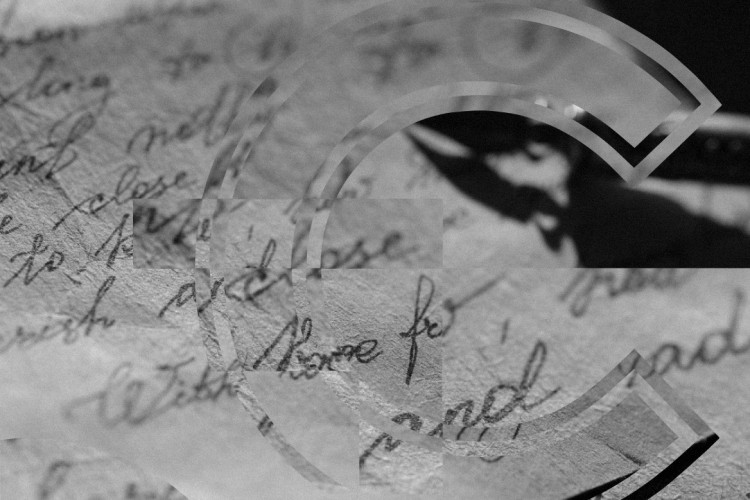
There is a time when people are wondering why some good bands are not growing bigger. One of those thoughts cames from Byron Conley and Jimmy Johnson, the founder of Forced Exposure, an independent music magazine from the early 90s. They said, “Mission of Burma played a noisily aggressive brand of guitar pop that is always real fuckin’ close to just-what the-doctor-ordered, but most of the time it seemed like nobody cared. Why? Well, people are assholes, I guess.” About twenty years later, these kind of thoughts still haunt the minds of people who dig the obscure side of the music scene. But what is the main reason why people are still pondering on the same issue? Are people really assholes?
Fortunately, the answer to that question is: no, people aren’t assholes. In the opening pages of chapter three from “Our Band Could be Your Life” – a book on the American independent music scene by Michael Azerrad, the exact thought from Byron Conley and Jimmy Johnson was quoted, but at the end of the chapter, which mainly talks about Mission of Burma, Michael Azerrad corrected the statement, people are indeed are not assholes, and the failure of Mission of Burma to gain exposure at that time was due to the lack of supportive system for those independent bands at that time:
“No matter how brilliant Mission of Burma was, nationally there were relatively few clubs they could play, few radio stations to broadcast their music, few magazines to write about it, and few stores to sell it.”
So why the thought of obscure bands failing their chances to get bigger still exists in the era where every supportive system are on hand to support independent music scene (we have the internet, independent music label, etc.)? There’re some factors that might be able to answer this question.
Factor number one, this is the most palpable cause – with the existence of those supportive factors, (and the massive information flows on our everyday life) the chance of musicians getting noticed is getting smaller. Now, everyone is an artist, or in this case, everyone is a musician. Everyone with the ability to sing, create a melody, or simply cover some of their favorite songs and then upload it on sites like Soundcloud and Bandcamp have the right to call them self a musician. With this condition, the music scene is crowded with many up and coming talent, sometimes even too many of them for people to recognize. The life span of a music to on people’s mind is getting shorter. But, of course, there’s still a chance to stand out between the masses. With the right amount of quality, the right packaging and marketing tools, certain music will be able to emerge.
And with that, enter factor number two, and this is the most ironic factor: the issue of being independent. On the obscure music scene (or indie music scene, if you will) there’s a thought that being independent is sacred, so that some options of music standing out is often interpreted as an ideological threats. For the ones who thought this way, the smallest thought on marketing their music are strictly prohibited. Some other are so extreme that they consider making money from music as a sign of “destruction” of the independent spirit (selling music to people = making sell out music = not independent), or to simply put, a sign of capitalism.
Sadly, this kind of perspective is the real problem of the independent culture. I’ve seen so many great bands having this perspective, then having their musical career stuck, get going nowhere, and eventually die in peace.
Some of them are afraid of losing their “independence” if they play at some big events. Some others are afraid to sell their music by certain record labels because of the “sellout” tag that usually come through association. Not only from the bands, even the fans, also plays some part on this strict perspective. Some fanatics of the “independent” labels do not want their underrated/unknown band to get famous, they’ll hate them if ‘common’ people recognize those obscure names with the reason of exclusivity and other ideologies.
Then, what will happen if those great yet obscure bands are only chasing the “independent” status (which kind of overrated these days)? Who’s to blame when people only knew so few representation of this so-called independent culture? Is it the public’s fault, or is it our perspective which needs correcting?
To me personally, it is better to deal with reality. The real idealism for me is not that far from popularity, or even capitalism. The real idealism is the one who can manage to use popularity and capitalism as a tool to deliver some ideas or social criticism to the people out there. So that we can develop not only as a part of independent culture but also a social culture.
If the case is being an independent musician, then I’d rather play and utilize those existing supportive system to deliver my music and the whole issue I had there. For example, we can always use internet marketing tools such as Myspace (who’s owned by the multimillionaire and one of the icon of capitalism itself: Ruppert Murdoch), or to be like KOIL who delivers their socio-critic album by Nagaswara (as the modern day’s representation of Indonesian major label).
Who knows, if we do that, perhaps someday we will live in a society where everyone are accustomed to listen and discuss the songs and maybe the message from musicians such as White Shoes and the Couples Company, Efek Rumah Kaca, and Homicide – as todays music scenesters proudly do. Just like how Nivana’s Nevermind was massively circulated and consumed:
“I’m not saying for better or for worse, but it’s undeniable that that was the record that extended what so many people had felt and been a part of, and extended it to the people who had never thought those thoughts before, or thought to be part of something like that before” (Corey Rusk, On Epilogue – Our Band Could be Your Life, 2001).
Factor number three, and this is the easiest one, those obscure bands are just too lazy. And if it’s really the case, then it’s not the people who are assholes, it’s the band.











